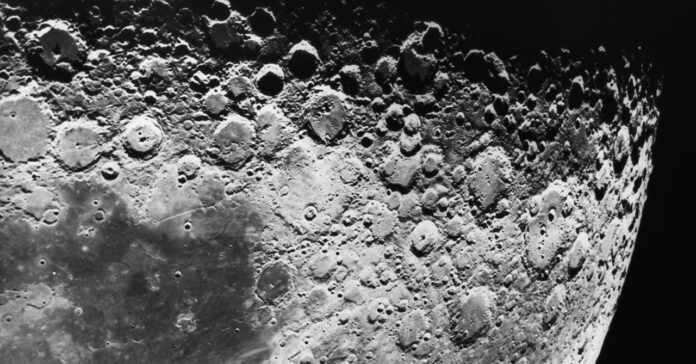Thanga and his group have sketched a machine that may use sun panels and batteries to give you the energy to push temperatures inside of a lava tube all the way down to the deep freeze had to create their lunar ark. That is the defining distinction between Thanga’s design and Hagedorn’s idea experiment. The place Thanga’s workforce would goal to actively cool the ark, Hagedorn and the Smithsonian group have envisioned a repository that makes use of herbal options of the moon to stay the samples cryogenic.
“The theory in the back of our proposal is that, to the level shall we make it, it might be passive,” Parenti stated. She identified that folks have lengthy speculated in regards to the concept of creating one thing that retail outlets fabrics at the moon, however the entire concepts have required a workforce to handle them.
To passively handle a perpetual deep freeze, they’ve proposed construction the repository at the south pole of the moon the place, inside of some craters, coincidences of celestial geometry have aligned to create spaces of everlasting shadow, and temperatures can also be as little as –196 levels centigrade. The ones prerequisites would imply that the samples may well be saved with out want for workforce, and so they may well be maintained with rovers and robotics by myself.
Whilst in concept all of this makes those everlasting polar shadows excellent for this kind of venture, “we don’t know the fundamentals of what that position is,” Thanga countered. Simply remaining month, NASA canceled a challenge that may were the primary rover to discover the pole partly as a result of the technical demanding situations posed. “This is likely one of the ironic issues,” Thanga stated. “It’s close by Earth, nevertheless it’s possibly one of the vital excessive puts in all the sun machine.”
Fitzpatrick feels assured, on the other hand, that NASA’s present lunar roadmap will supply considerable alternative to discover and perceive the ones darkish polar nation-states, together with a challenge scheduled for later this yr that plans to land on a ridge overlooking a polar shadow. However as NASA appears to discover the ones areas, Thanga identified, it’s imaginable that we would simply be informed extra about how exhausting it’s to exist and function in that degree of chilly.
“Simply running in cryogenic prerequisites, that’s now not trivial in any respect,” Thanga stated. “Mechanical issues do bizarre issues. They will freeze up, latch up, you identify it, beneath spacelike prerequisites. Even from fairly chilly prerequisites in a vacuum, we now have a phenomenon known as chilly welding,” the place two items of steel fuse on touch.
Thanga argues that the extra smart factor to do, then, is to create the ark in a lava tube since his colleagues in planetary science be expecting the ones tubes to be moderately very similar to those we now have on Earth, albeit a lot chillier, which provides researchers and engineers an figuring out of what to anticipate and learn how to plan for it.
Similar to Hagedorn’s thought, on the other hand, worth and agenda haven’t begun to be delicate. However Thanga expects that, after the design is finalized (which might but take years), it may well be constructed and assembled sooner and less expensive than the World Area Station.





 #shorts #shortsfeed #nature #youtubeshorts #iciness
#shorts #shortsfeed #nature #youtubeshorts #iciness